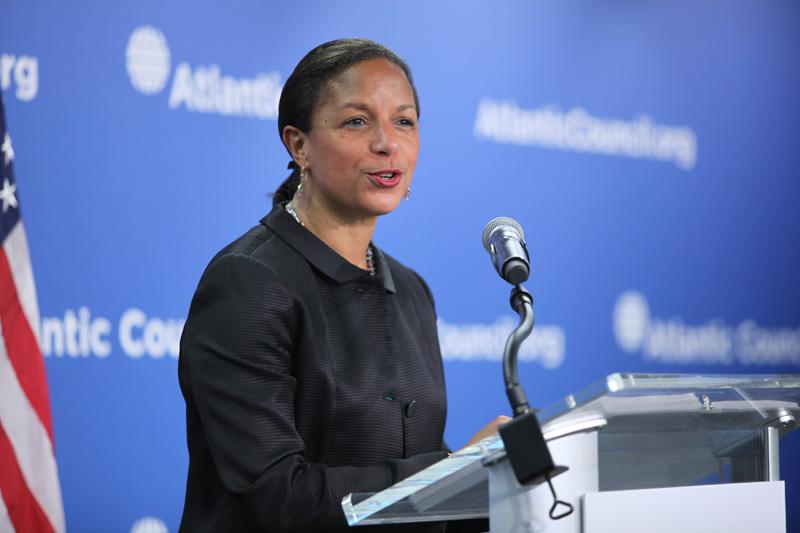National Security Advisor Susan Rice announcing President Obama's special declassification on Argentina, March 17, 2016
(Photo courtesy of Atlantic Council/Victoria Langton)
National Security Archive Hails White House Decision to Declassify Intelligence and Military Records on Dirty War
Declassification Project Comes on 40th Anniversary of Military Coup
Kissinger to the Generals: "If there are things that have to be done, you should do them quickly"

















